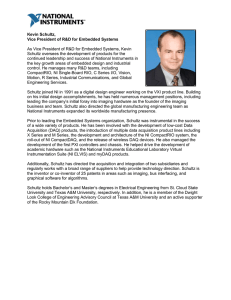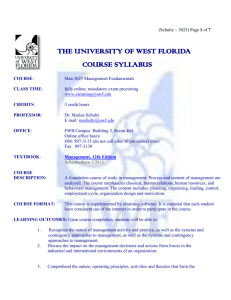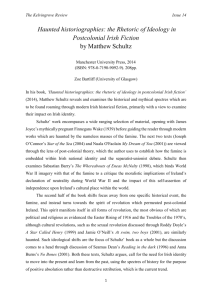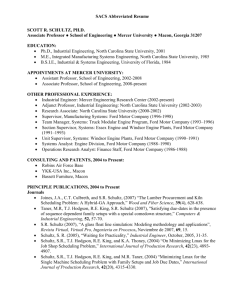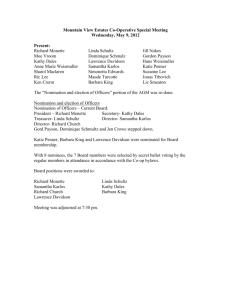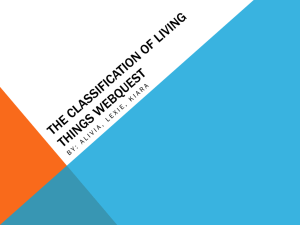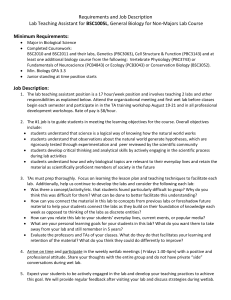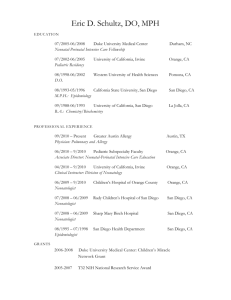Running head: EDUCATION AS GOD`S PLAN EDUCATION AS
advertisement
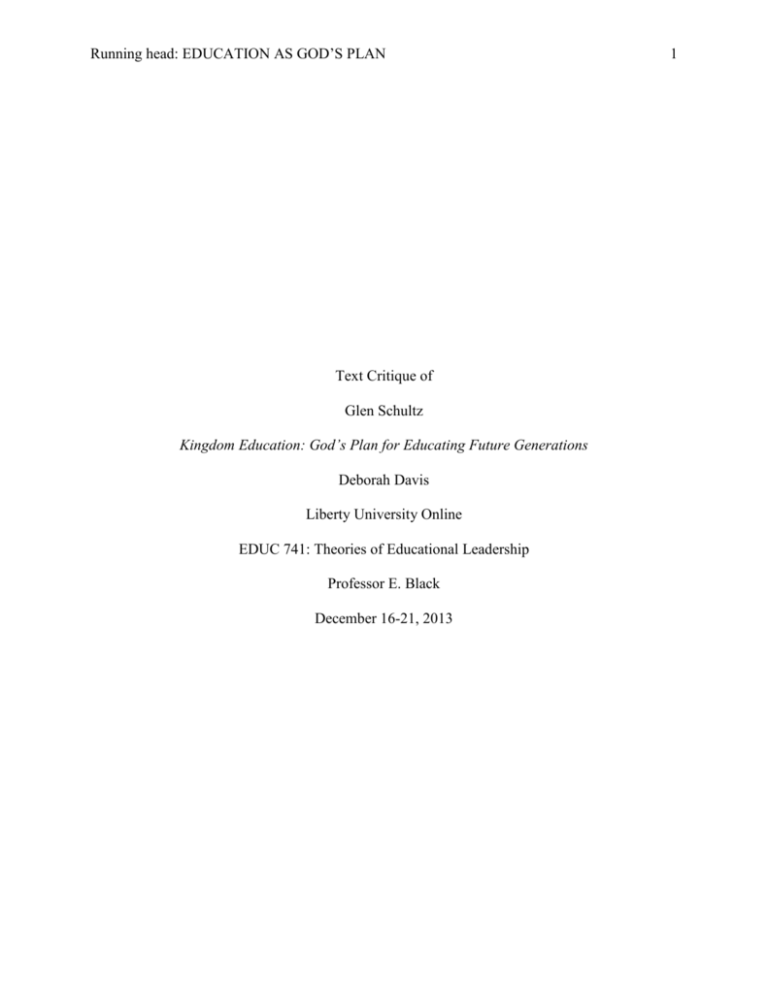
Running head: EDUCATION AS GOD’S PLAN Text Critique of Glen Schultz Kingdom Education: God’s Plan for Educating Future Generations Deborah Davis Liberty University Online EDUC 741: Theories of Educational Leadership Professor E. Black December 16-21, 2013 1 EDUCATION AS GOD’S PLAN 2 Abstract This document will provide a brief overview/summary of the text authors’ key points. That information will be followed by a response from this author. The personal response will be followed with application as an educational leader. EDUCATION AS GOD’S PLAN 3 Kingdom Education: God’s Plan for Educating Future Generations A Brief Summary The passing of knowledge is a God-given assignment from the beginning of time. Christian parents should be following the example of their Jewish counterparts and forebears ensuring “the young child will grow and remain faithful to their religion” (Schultz, 1998, p. 11). Schultz presents the desire for wisdom as both a positive and a negative. The positive is less transparent as it is less natural. The sin nature of man allows the negative of desiring wisdom to be a tasty temptation. The ability to capture the positive desire for wisdom and engage the mind of the child is, however, the critical factor in bringing that child to Christ. That, above all, is the goal of a Christian parent. The restriction of Christian education vice kingdom education eliminates two-thirds of the power of the trinity. “God’s kingdom is a present reality. It is not a physical kingdom but a spiritual one” (Schultz, 1998, p. 22). As such, it is not a momentary thing, but a thing that encompasses all eternity and in doing so, the simple and short lifespans of mere humans. Our short timeframe makes the educating of the next generation even more essential. Regardless of method or schooling, by the time a child enters adulthood, the philosophy of life, or world-view, will have been formed (Schultz, 1998, p. 35). In that common knowledge exposes that being in a garage does not make one a car, so too, people need reminding that being in church does not make them Christian. The world will only see the actions of the individual, the values and beliefs on which those actions are based are a product of worldview. Teachers need to understand their influence on the worldview of their charges. Schultz (1998) places the responsibility of educational decisions on the parents. He presents the importance of education as a quandary from Christian pre-school through secular EDUCATION AS GOD’S PLAN 4 schooling to Christian colleges. He does not, however, address the financial constraints that may way upon these parental decisions. Schultz (1998) presents that all parents are home-schoolers to some degree in that all parents teach their children some things (p. 71). However, he points out the need to carefully and prayerfully seek help in the process. Schools and churches can be valuable assets, or powerful enemies in the battle of kingdom education. The secularization of schools in America has pulled many children away from home, and away from God, believing instead in the value of education and worldly knowledge for their salvation. Churches need to stand up for families and aid them in taking their children back from the world. In the battle for the hearts and minds of our children, Shultz (1998) expresses details of the tools of spiritual warfare (p. 121-122). The most powerful tool is the mind. Engaging it in kingdom education is critical to the future destiny of our offspring. A Personal Response My son was home-schooled from fourth grade through high school. So, my personal experience in teaching my child is different from the one I had as a child. I remember the day the Bibles were taken from the classroom and we were no longer to recite the Lord’s Prayer every day in school. As a public school student in California, I watched the decline of morals over the years. As a parent, I see Schultz’s point about the importance of encapsulating our children in a world of Godliness before they set out on their own paths. As a person who has worked with parents and children in many venues, I think Schultz’s (1998) construct that “every Christian family could afford to send their children to a school that would value and reinforce the family spiritual beliefs” (p. 129), must hail from a sheltered view of fiscal accountability. The fact that EDUCATION AS GOD’S PLAN 5 the book dates before the turn of the millennia may be part of the issue, but I suspect that Schultz would still present the same ideology. Application to Educational Leadership Any adult who interacts with a child has been and is in a position of educational leadership. For those of us who have pursued the educational goal of learning and serving in leadership, there is recognition of responsibility that goes much deeper than the casual observer. Schultz has been there, and knows the responsibility of this kind of leadership. However, the outline of Schultz’s (1998) his leadership responsibilities does not indicate secular or sacred schooling for his profession (p. 72). For those who wage the battle for the hearts and minds of the children of America in the war zone known as public school, the challenges are magnified. Most difficult are the very points made about the drifting away from Christianity and Protestant ethos into an agnostic and atheistic perspective. Without the foundation of Christian ethos, these children do not see themselves as the children of a Holy God, created in His image. Instead, they fight tooth and nail for daily recognition on a much shallower plane. This plane of daily society is one that is sprayed upon by gangs, and spewed upon by the mass media, and seldom stifled by the overburdened parents struggling to survive a climate of fiscal chills. The warm truth of God’s love is the only thing that can save our children, and for those of us in educational leadership, we must preach it in everything we do. EDUCATION AS GOD’S PLAN 6 References Schultz, G. (1998). Kingdom education: God’s plan for educating future generations. (1st ed.). Nashville, TN: LifeWay Press
